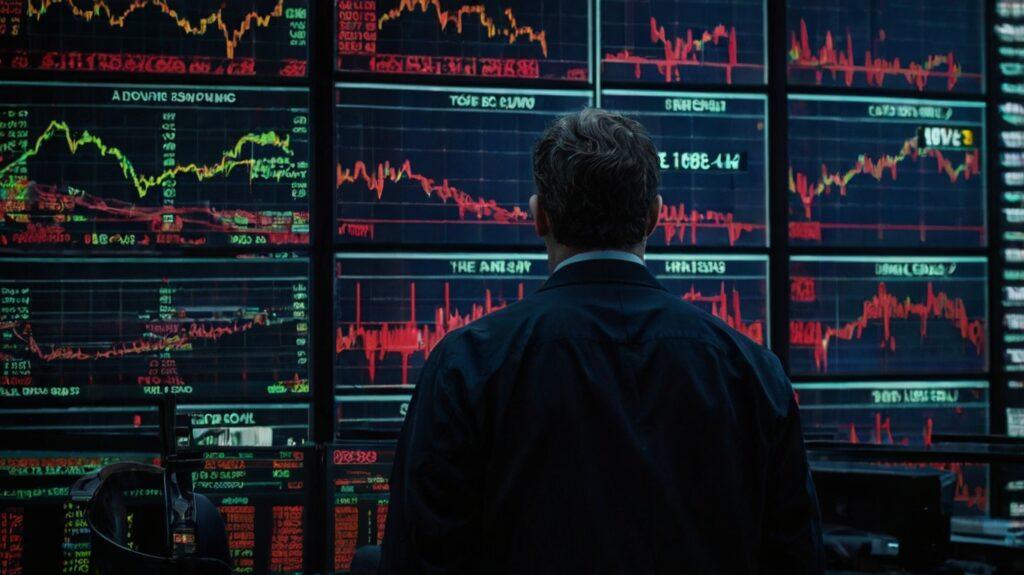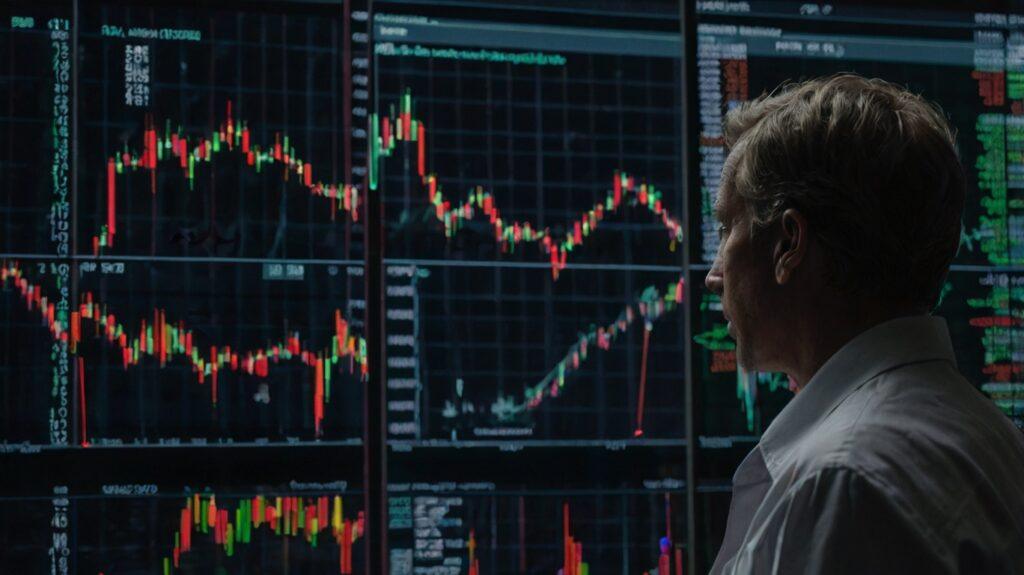Table of Contents
It was a normal morning the day the stock market crash today. I read the news while I sipped my coffee and looked over my resume. But over time, things got worse, and I knew something was very wrong. For the first time since 1974, the Dow Jones Industrial Average went down for ten days in a row. It fell more than 1,100 points on the worst trade day in months. What I saw on the screen wasn’t just numbers; it was a terrible blow to my mental health, goals, and money.

A Shocking Turn of Events on Stock Market Crash Today
Over the years, I’ve carefully spent my money and built a diverse portfolio. If you had lost all your hard work in one afternoon, getting ready wouldn’t have made you feel better. There was more at stake than just money. It was also dangerous for me to trust the market and the Federal Reserve’s decisions. Like everyone else, I had hoped for more safety, less inflation, and a more steady handling of money. It was a scary sign when the Federal Reserve said it would only lower interest rates twice in 2025 instead of the four times that were originally planned. Inflation will last longer than expected.
Emotional Toll on a Personal Investor
This crash changed me in more than one way. For me, it caused a lot of stress. It made me worry about my savings for the future, my retirement, and my kids’ college funds. I tell myself over and over to be smart and think about the long term, but things like this test the strength of every investment. It’s hard to stay cool when all the lights go out. I know I should keep going when things get tough.
The Market’s Brutal Reaction

The market’s reaction was swift and brutal:
- The S&P 500 dropped 3%.
- The Nasdaq Composite tumbled 3.6%, marking its steepest Fed decision day loss since March 2001.
- Treasury yields surged to five-month highs, and the Russell 2000 experienced a 4.4% decline.
Stocks I held dearly—ones I believed in for their long-term potential—took a severe beating. Tesla dropped 8.3%, and Nvidia, a key player in my portfolio, was down 5% for the month despite its incredible performance earlier in the year. These weren’t just numbers; they were the manifestation of countless hours of research, strategy, and belief in these companies’ visions.
The Human Element of the Crash
The terrible death of UnitedHealthcare CEO Brian Thompson was one event that stood out to me. The stock price went up and down a lot after he died, and there was no one to lead the company. Even though UnitedHealth Group’s price had somewhat recovered on Wednesday after dropping 15% earlier in the month, investors were still worried about it. I thought about the people in the market because trust, leadership, and the lives of people are so important to the success of companies.
Learning from the Downturn
As an investor, I’m used to seeing prices change for no reason. Having crashed before, this one seemed different. I believe that one reason is that people are more optimistic about the market’s future. Even though the market is down now, 2024 was a good year for it because the Dow went up 14%. But this situation made it very clear how weak trust in the market is.
Balancing Professional and Emotional Responses

This mess has also made it harder for me to pick good business choices in the future. I owe clients, friends, and other people who look to me for advice as well as my own money. It can be hard to deal with the real worries that come with the market moving so quickly while also staying calm and determined. In Federal Reserve talks, Chair Jerome Powell talked about the direction of interest rates and inflation. It took me a long time to figure out what he meant. People and businesses that spend money will have a hard time in the future because the Federal Reserve may keep its tight monetary policy in place for a long time.
Still, even in the chaos, there is drive. The market goes through waves, that’s what I tell myself. To put it simply, they go up and down. The crash is awful, but it also gives us a chance to learn and get better. My strategy is being rethought to make sure it is balanced and spread out across different businesses. This is to make sure that my portfolio can last through long times of uncertainty.
Finding Strength in Uncertainty
Since the crash, I’ve had a lot of different feelings. Though there is fear, there is also a strong will. I’m still a good investment even if I had a bad day or a run of bad luck. When something goes wrong, we have to show how well we can handle our feelings and our money.
As a worker, I see this as a chance to help other people get through this storm and to ask politicians to make their words more clear. I’ve already started to share my ideas and thoughts with my mentors and classmates. We are trying to figure out what to do next and make sense of this important event as a group.
There was more to my path than just making money. I wanted to grow as a person and as a worker while building a strong and flexible future. The stock market crash brought me back to that goal. I’m going to shut down my computer for the night because I know what’s coming up will be hard. But I know that every problem is a chance to get better. I will always remember what I learned from this crash, even when it’s over.


 Visit Our Google News Page
Visit Our Google News Page